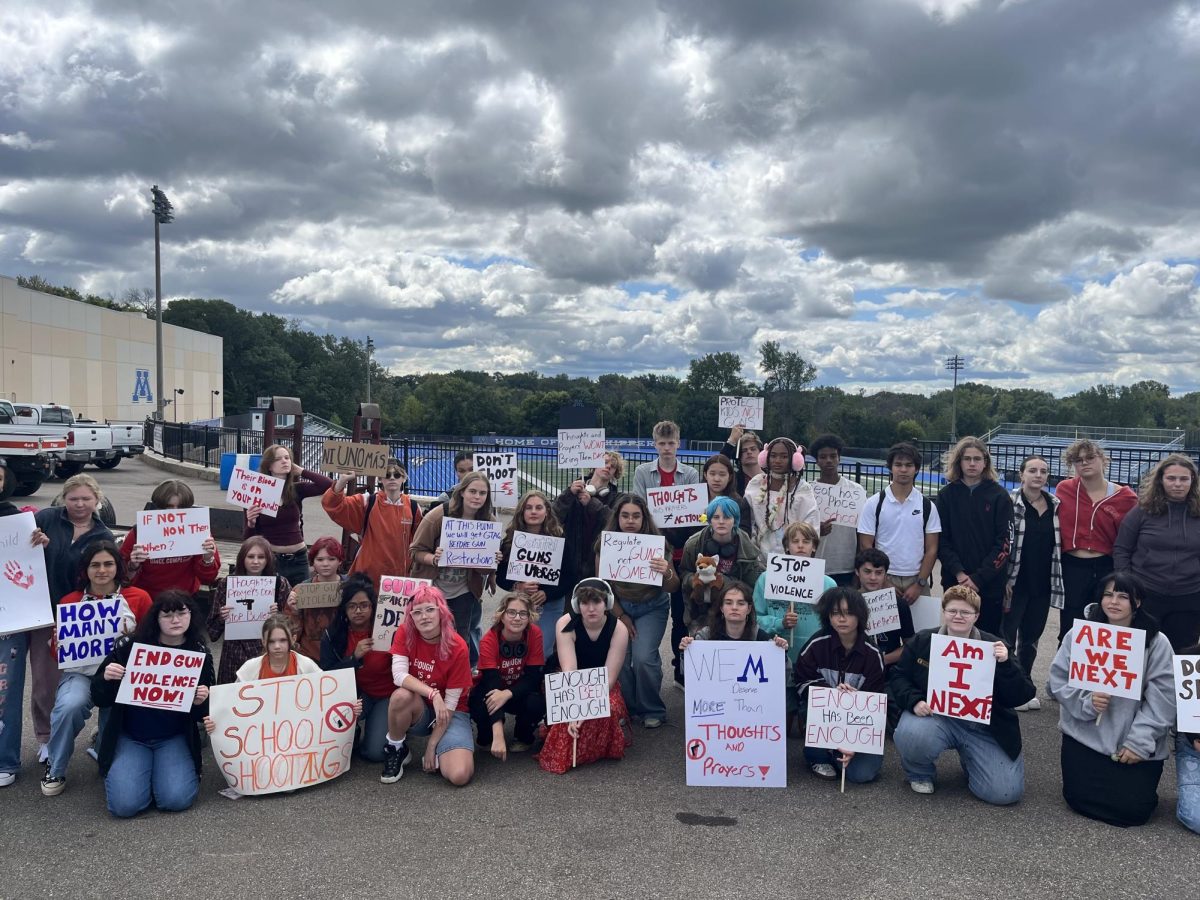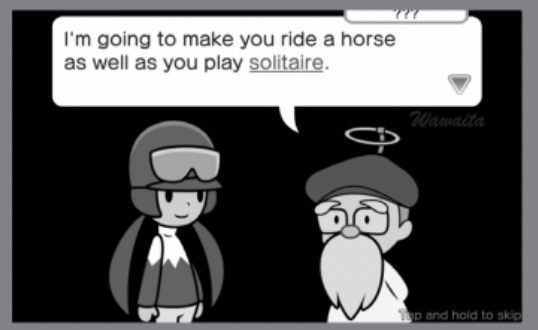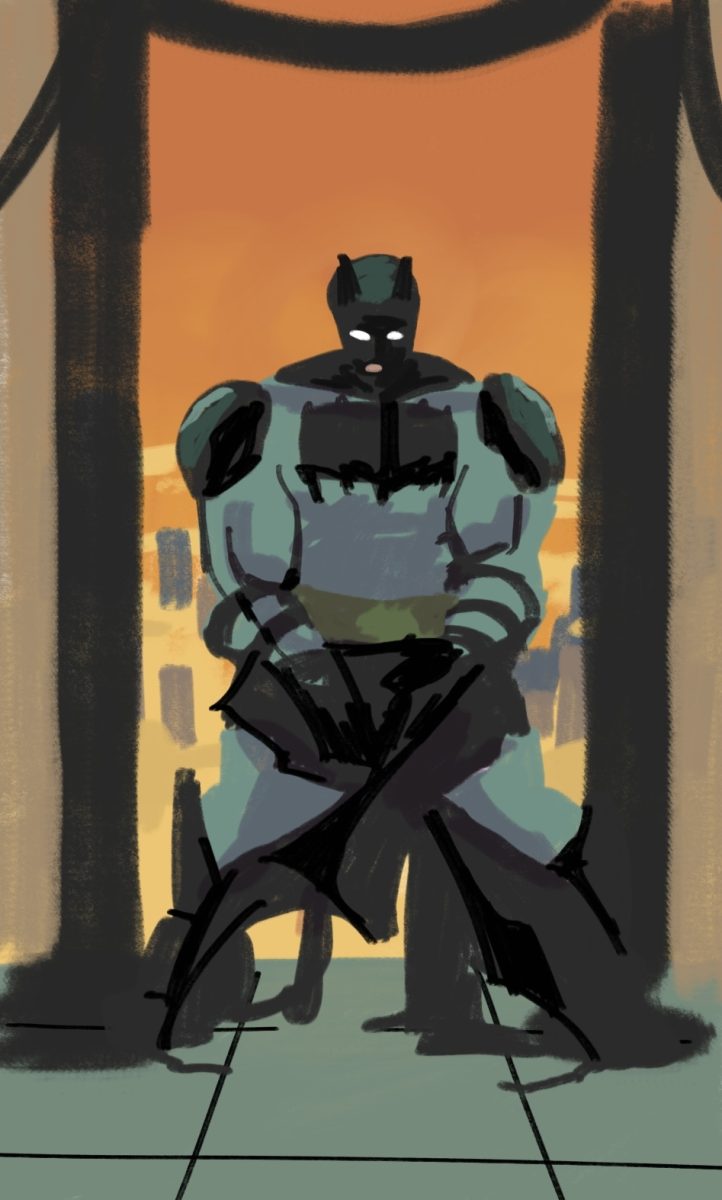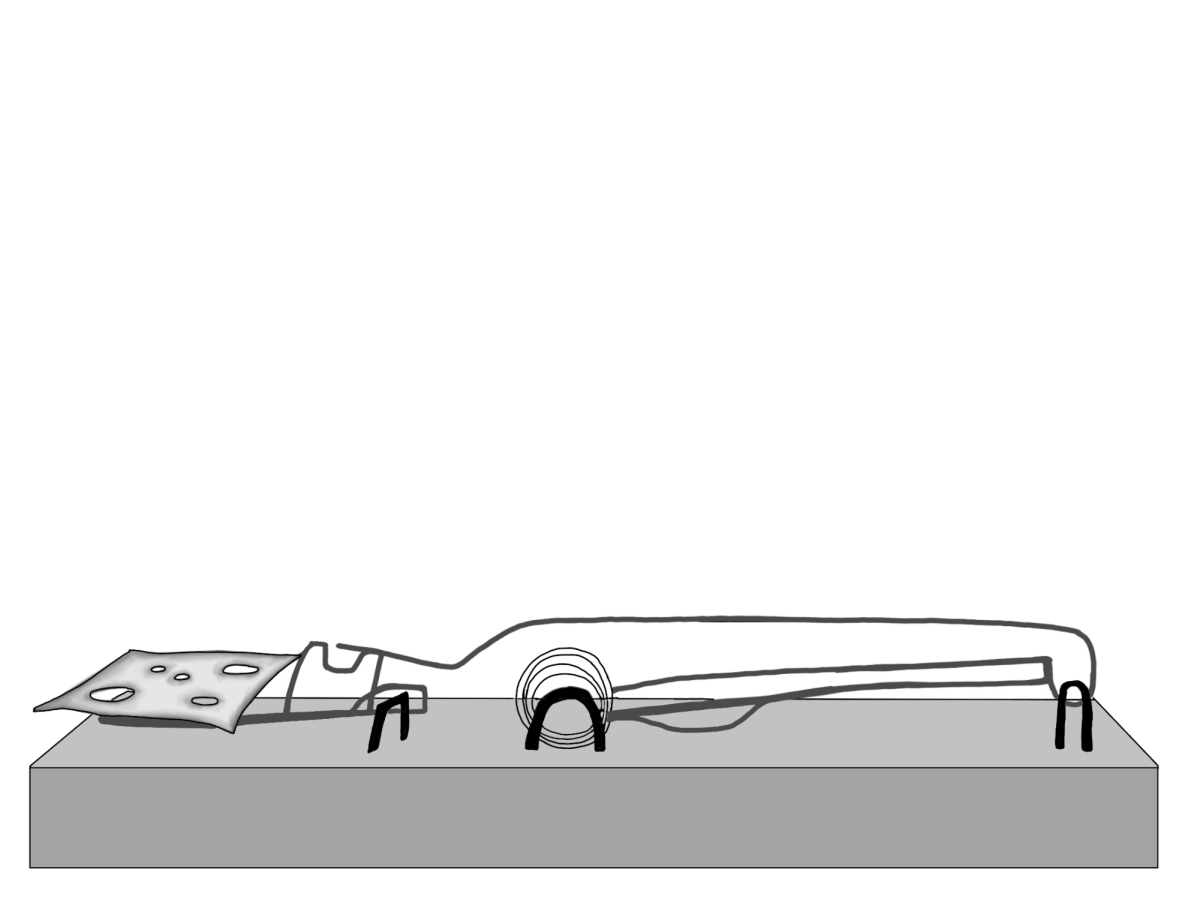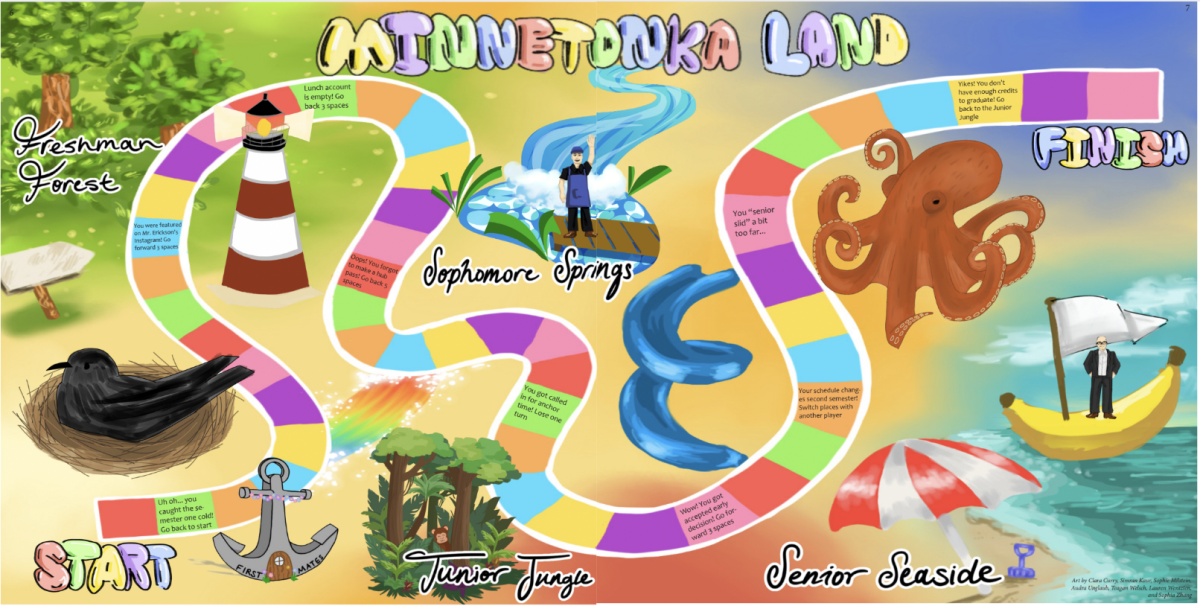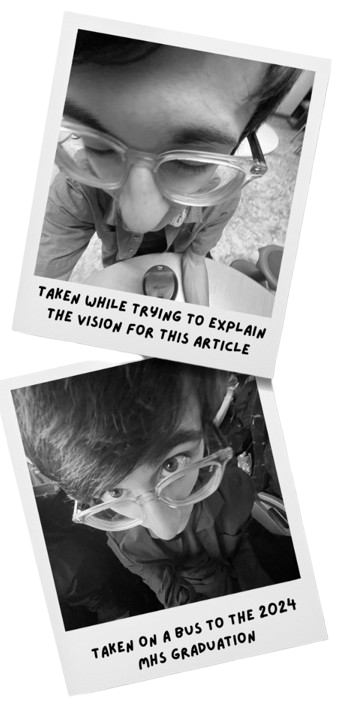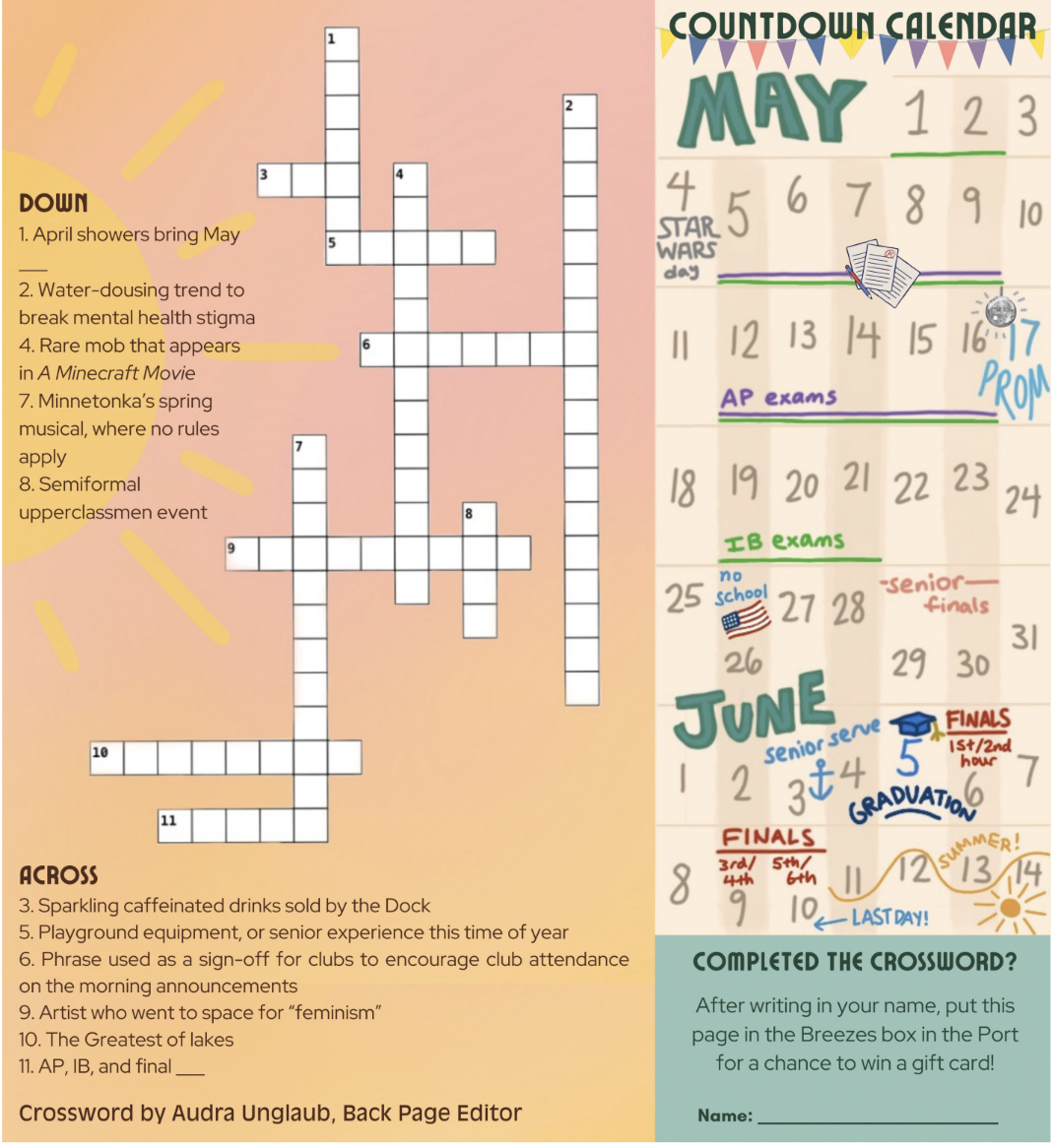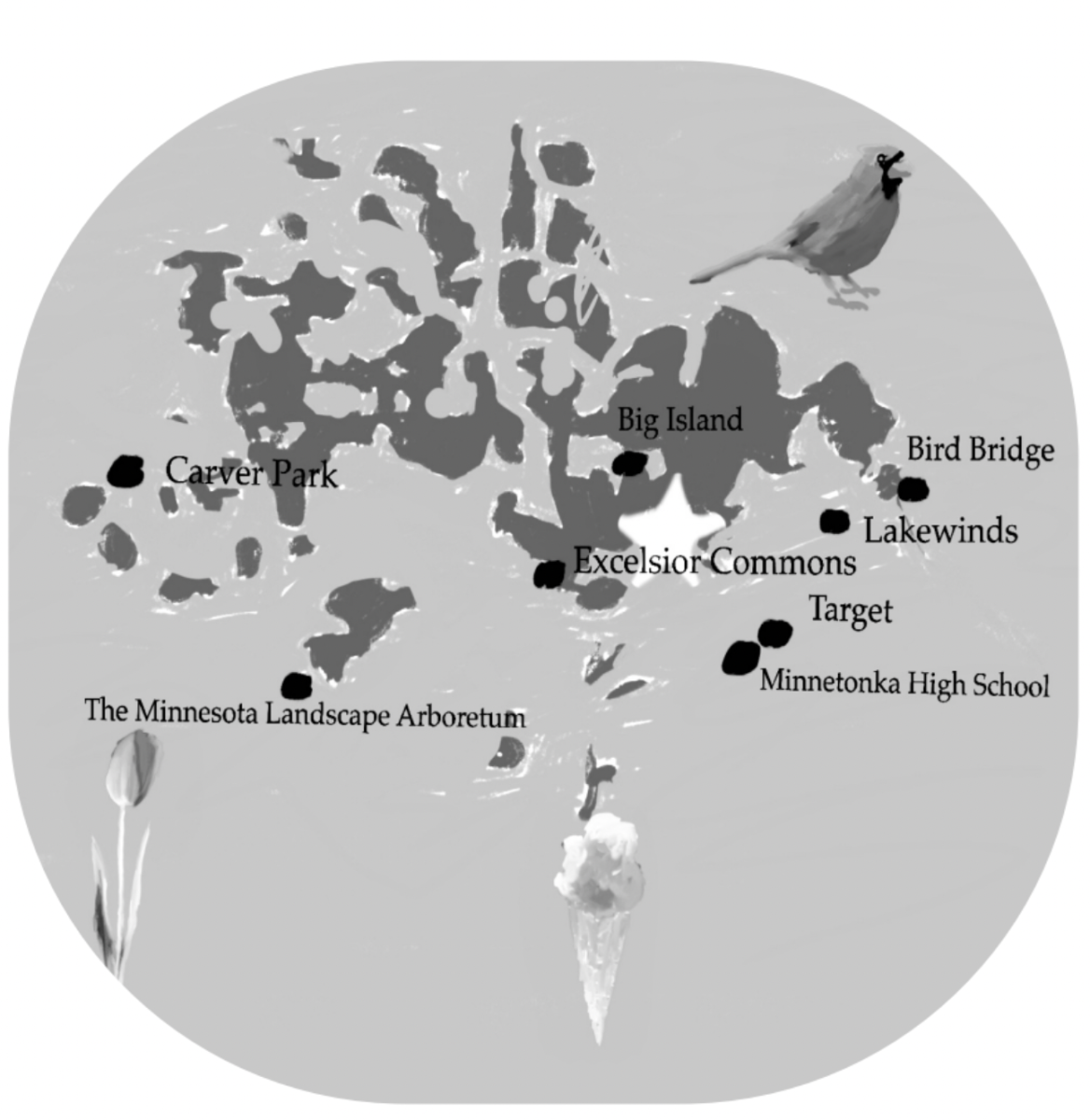Silent work time, individual assessments, the new phone policy—all ways that the Minnetonka School District has tried to prevent in-class distractions from contributing to the high-stress world of the everyday student. As you go through high school, your level of responsibility increases, but the number of notifications, alerts, and interruptions also dramatically surges. Emails flood your inbox. Messages ring in your ears. Mobile games conquer your home screen. Social media apps, as you probably know, seek to distract you more than any other. You find it hard to complete the tasks at hand.
But haven’t distractions always been a problem?
Your habits and behaviors that seem normal now differ from those of the past. While you are, say, flipping through the endless options for entertainment on any number of streaming services, kids your age in the ‘90s could hardly fathom a world where they didn’t have to thoroughly search out anything to appease their ravaging boredom. “When I went to high school, it was a book, and paper, and pen. We didn’t have phones,” explains Hannah Harrington, a Minnetonka graduate from 1996. “We [really] didn’t have any distractions other than a friend talking or passing a note.”
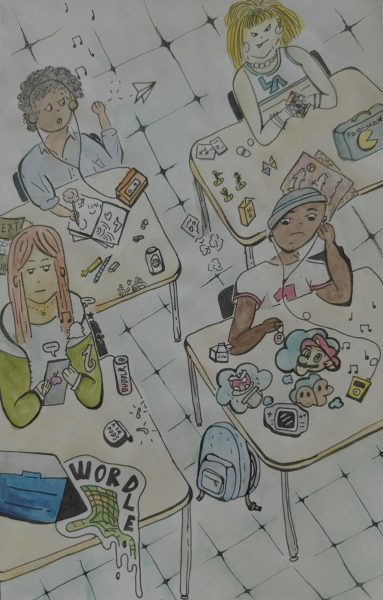
With the gush of technological advancement, the rate at which you are fed information and communicate with others has sent the world into a gluttonous feeding frenzy. Makayla Felknor, 2018, addressed how her generation used technology during their time at Minnetonka. “iPads and iPhones were definitely […] the biggest distraction[s]. Especially Snapchat.” While it’s true that these devices pose significant challenges with the amount of content they hold, it’s not all technology that betrays your learning. There are many things the district cannot weed out. Some students take to playing games, talking with friends, or doodling.
The question is, how do we vanquish these diversions from betraying our academic excellence? “It comes down to self control. In college no one holds you accountable,” Felknor explained. Self-discipline is an important skill to develop, especially as distractions persist and continue to accumulate. Although, not everyone agrees the student is responsible for keeping themselves engaged. In fact, many students claim that they don’t get distracted in school when classes are intriguing. For example, Harrington astutely observed that, “as long as your teacher was interesting and engaging,” students had no problem listening to the lesson. Many teachers incorporate activities that allow for student participation such as Kahoots, standing during breaks, or talking to tablemates.
In this world where it would take you a lifetime to consume all the content created in one day alone, self-control is difficult to obtain, but an invaluable tool in helping you stay on track. “How well I did on assignments correlated to having those distractions in the classroom,” Felknor remarked, noting how interruptions could harm her grades. “I actually could pay attention when teachers wouldn’t allow phones.”
It’s an important learning curve for every student. School presents an interesting opportunity for kids to learn how to manage their time with a strong support system to help them when needed. And though it seems like a struggle to get everything done at times, as Felknor put it: “I feel like Minnetonka does a really good job preparing students for college.”


